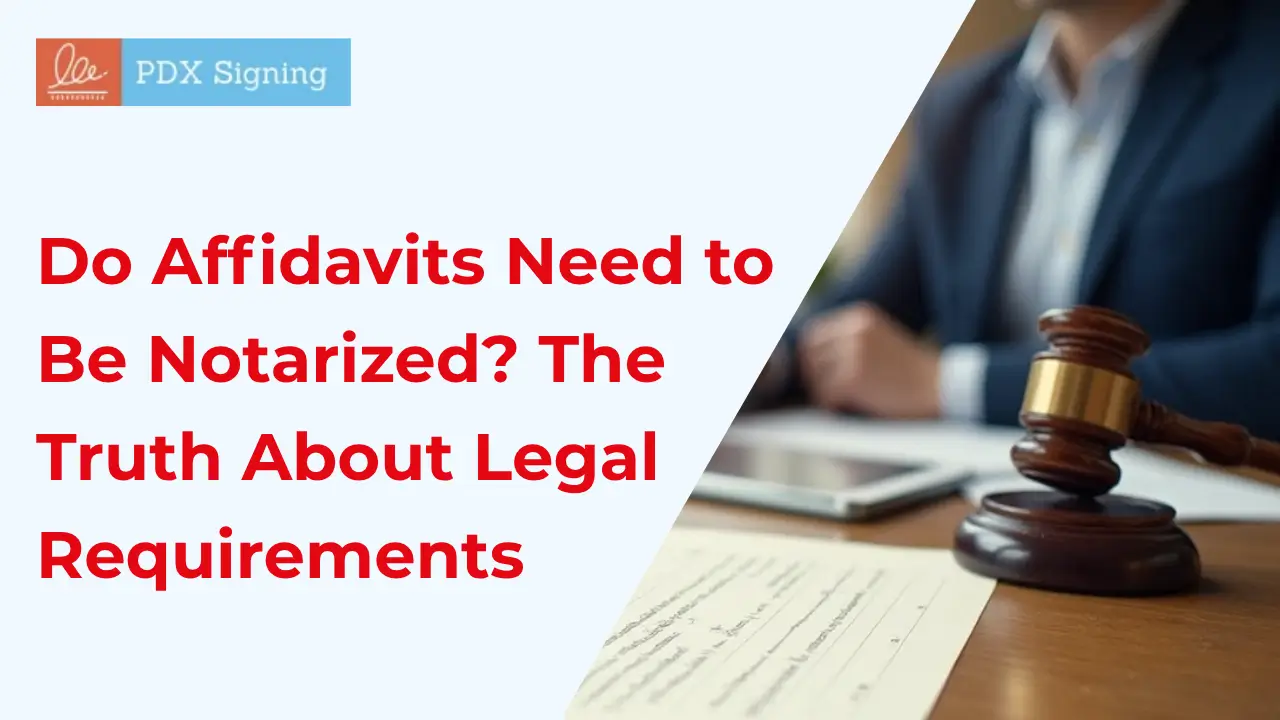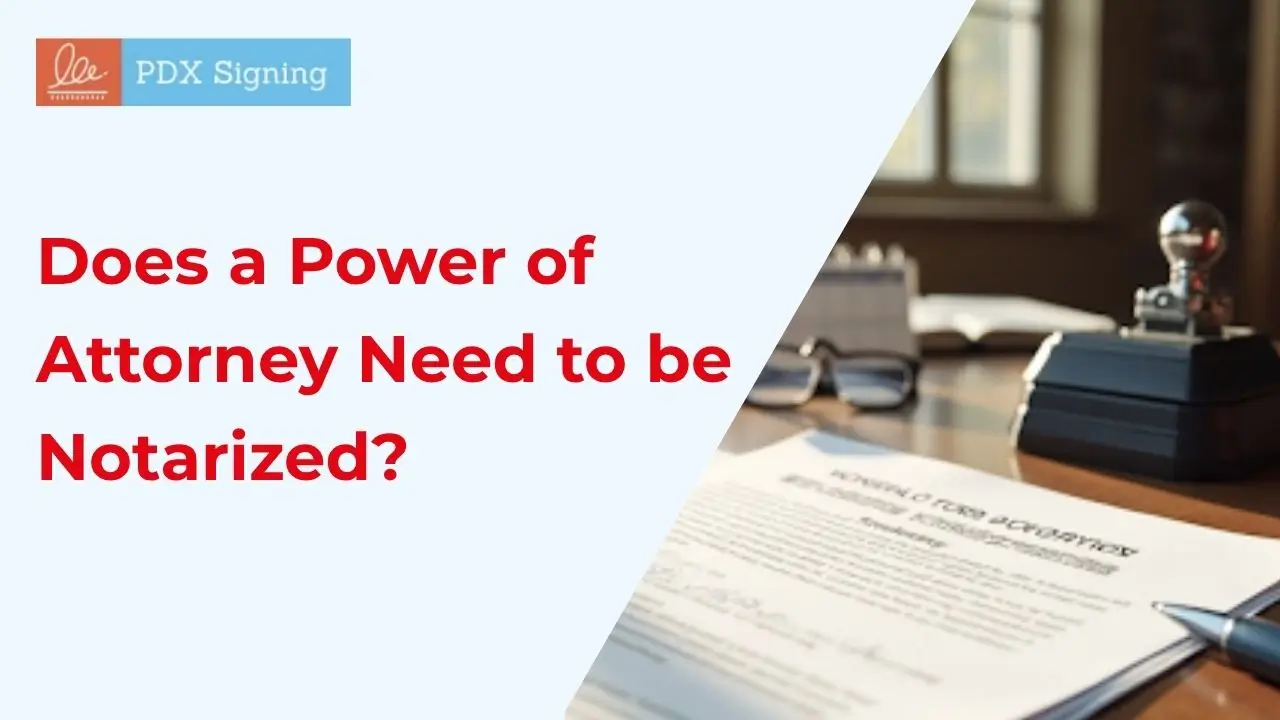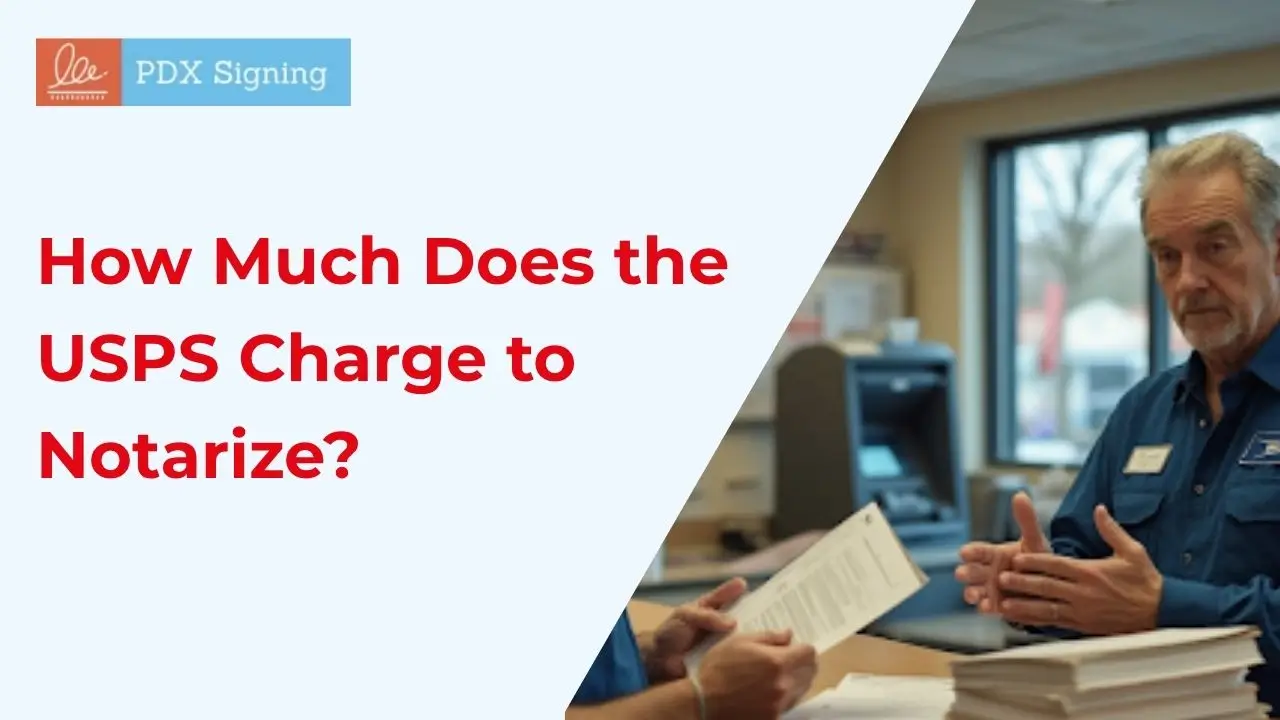Many people wonder if a power of attorney needs notarization. This common question comes up during estate planning. A Power of Attorney (POA) lets you give specific powers to a trusted person—called an ‘agent’ or ‘attorney-in-fact’—to handle your affairs. Each state has different rules about notarization.
States like Florida and New York require notarization for all POAs, while other states remain more flexible. Notarization substantially strengthens your POA’s legal validity and helps prevent fraud, even though it’s not required everywhere. The notary’s role authenticates the signer’s identity. This becomes crucial because most estate plans use “durable” POAs that stay effective even after someone becomes incapacitated. Let me walk you through when you need notarization, what alternatives like witness signatures work, and how to get your POA properly notarized. For professional notary services, visit PDX Signing.
What is a Power of Attorney, and Why Does It Matter
A Power of Attorney is a vital legal planning document that lets someone else make decisions for you. You should understand how it works and what you need to prepare it properly, including whether you need to get it notarized.
Definition of POA
A Power of Attorney (POA) is a legal document where one person (the principal) gives another person (the agent or attorney-in-fact) permission to act on their behalf. This powerful legal tool can handle specific tasks or cover many aspects of the principal’s life. The POA can start working right after signing or kick in later after certain events, like someone becoming incapacitated.
Most POAs stay valid until the principal cancels them or dies. A standard POA stops working if the principal loses mental capacity. That’s why many people choose a durable power of attorney that keeps working even if the principal can’t make decisions anymore.
Roles of principal and agent
The principal must be 18 years old and mentally competent to create a POA. They decide what powers to give the agent, who also needs to be at least 18 years old.
The agent creates a fiduciary relationship by accepting the role. This legal commitment means the agent must:
- Follow what the principal wants in the POA
- Act with complete honesty
- Make choices based on the principal’s priorities
- Keep detailed records of everything they do
Agents who break these rules face personal liability, including making unauthorized gifts or missing tax filings. Despite that, competent principals keep their right to make their own choices even with a POA.
Common uses of POA
Powers of attorney serve two significant purposes. They make life easier by letting someone handle your business when you’re not around. It also protects you by making sure someone can take care of things if you become incapacitated.
Your family might need to go to court through guardianship or conservatorship if you don’t have a proper POA and become unable to manage your affairs. This process costs a lot of money, takes time, and becomes public record.
POAs are a great way to get help with:
- Financial matters during long trips or military service
- Healthcare choices during sickness or incapacity
- Property deals when you’re not available
- Bills and taxes if you become incapacitated
Types of Power of Attorney You Should Know
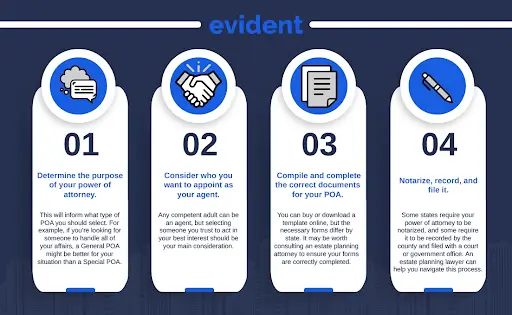
You need to understand different types of power of attorney to choose what works best for your needs, whether it needs notarization or not.
Durable vs Non-Durable POA
These two types differ mainly in what happens after incapacity. A durable power of attorney stays valid even if you become physically or mentally incapacitated. A non-durable power of attorney, however, ends automatically with your incapacity. Durability simply means the document remains valid after you become incapacitated. Pennsylvania and several other states now assume all powers of attorney are durable unless specified otherwise.
General Power of Attorney
A general power of attorney gives your agent comprehensive authority over your affairs. Your agent can manage bank accounts, sign checks, conduct business deals, handle real estate, and file your taxes. You must choose someone completely trustworthy because they can take almost any legal action on your behalf. People usually use this type of POA in temporary situations when they can’t be present but remain capable of handling their affairs.
Medical and Financial POA
These specialized documents keep healthcare and financial decisions separate. A medical power of attorney lets someone make healthcare decisions when you can’t communicate. A financial power of attorney enables your agent to manage finances, handle bills, and deal with property matters. Most experts suggest creating separate documents for these purposes, though sometimes one person serves as both agents.
Springing POA
A springing power of attorney works differently from others. It activates only when specific conditions occur—usually, your incapacitation. This protects you from someone using their authority too soon. The document must define incapacity clearly, and doctors often need to certify it. People who worry about giving immediate authority often choose this option, though getting doctors’ certification can slow things down.
Does a Power of Attorney Need to Be Notarized?
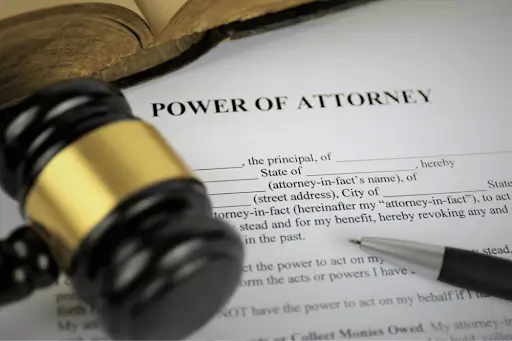
The legal requirements to notarize a power of attorney differ a lot across the United States. Notarization is more than just a formality—it provides vital legal protection and validates this important document.
States that require notarization
Many states legally require notarization to make a power of attorney valid. Florida, New York, and Maine need POAs to be acknowledged before a notary public. Maine’s law states, “a power of attorney is not valid unless it is acknowledged before a Notary Public”. Personal powers of attorney must be signed with a notarial officer present in Pennsylvania and Delaware. South Carolina takes it a step further and requires both notarization and two adult witnesses to make a POA legally binding.
States that allow witnesses instead
Some states let you use witness signatures as an alternative to notarization. California, Illinois, and several other states accept either notarization or witness signatures. States typically fall into three groups: those that need both witnesses and a notary (like Florida, Iowa, Kansas), those that accept either witnesses or a notary (like Alaska, Arizona, California), and those that only need witnesses (like Alabama, Colorado, Connecticut).
Why is notarization still recommended
Notarizing a POA has major benefits, even when the law doesn’t require it. The biggest advantage is that notarization helps verify the signer’s identity, which prevents fraud and ensures they signed willingly. Banks and hospitals are also more likely to accept a notarized POA instead of questioning if it’s real. A notarized document carries more weight in court and adds credibility to your legal standing.
Risks of not notarizing a POA
You face several problems if you do not notarize a power of attorney. Banks might refuse to honor your POA because they can’t verify if it’s authentic. Courts are more likely to question an unnotarized document, which weakens your position if someone challenges it. Your designated agent might hit major roadblocks when trying to act on your behalf, especially with financial transactions or real estate deals.
How to Notarize a Power of Attorney
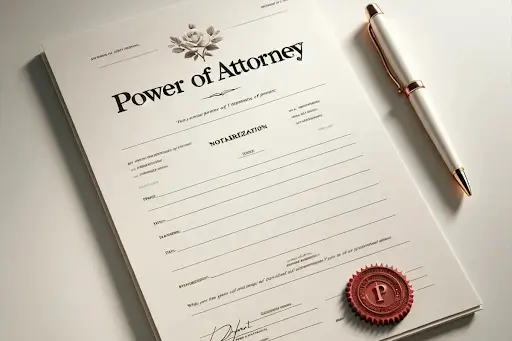
Getting your power of attorney notarized becomes easier when you know the right steps. A notarized POA document is a vital requirement that adds legal weight and makes banks and healthcare providers more likely to accept it.
Step-by-step notarization process
Fill out your POA form, but leave it unsigned – you’ll need to sign it with the notary present. Get all pages of the document ready, not just where you sign. Book a time with a notary public. Bring a current government-issued photo ID when you go. The final step is signing while the notary watches. They’ll check your identity, watch you sign, and put their official seal on the document.
Where to find a notary for a POA
Banks and credit unions are a great way to get notary services, which are often free if you have an account. UPS and FedEx stores also notarize documents. You’ll find notaries at law offices, courthouses, and some government buildings, too. Mobile notaries can visit your home or hospital if you can’t travel, though they charge extra for the trip.
Online notarization options
Remote Online Notarization (RON) gives you a handy way to skip in-person visits. Platforms like DocuSign Notary let you join a secure video call where they verify who you are through knowledge-based authentication. These platforms store video recordings of each session for 10 years and give you digital certificates and electronic notary seals. RON also creates detailed audit trails with tamper-evident seals for every document.
Cost of notarizing a POA
Each state sets different notary fees, which run from $2 to $15 per signature. Mobile notaries might charge $50 to $75 when they travel. States like Connecticut, Nevada, and Virginia have set travel fees. Arizona and Montana’s notaries use mileage to calculate their rates. Michigan, North Carolina, and Pennsylvania’s laws say notaries must show their fee schedules.
Tips for smooth notarization
Book your appointment ahead to avoid waiting. Make sure your government ID hasn’t expired. Read your document carefully before you go. Keep your POA papers in their original order. Everyone who needs to sign should be there at the same time. Think over online notarization if your state allows it – it might save you time. The sort of thing I love to remind people about is that notaries can’t give legal advice about what’s in your document.
Conclusion
Powers of Attorney are vital legal tools that protect your interests when you can’t represent yourself. This piece explores POAs in detail – from different types to what each state needs to make them valid. Without doubt, notarization plays a key role in creating a legally sound POA.
State laws have different rules about notarization. Yet one thing is clear – getting your Power of Attorney documents notarized brings major benefits, whatever your local laws say. Your POA carries more weight with banks, healthcare providers, and other organizations when it has an official notary seal. On top of that, it substantially cuts down fraud risk and provides proof that could be a great way to get answers if legal questions come up later.
Getting your POA notarized takes little effort compared to the protection you get. You just need a valid ID, your unsigned document, and a notary – available at banks, shipping stores, or through mobile services. If you can’t visit a notary in person, online notarization now offers a convenient option.
Before signing any papers, you should discuss your individual needs with a legal professional. Today’s modest notarization investment might help you and your agent avoid significant legal problems in the future. For reliable notary services, check out PDX Signing.
FAQs
Q1. What are the major forms of Power of Attorney?
The main kinds are Durable and Non-Durable POAs, General POA, Medical and Financial POAs, and Springing POA. Choosing the appropriate kind for your needs is vital, as each satisfies different goals and functions in different situations.
Q2. Normally, notarizing a Power of Attorney runs about?
Notary fees usually range from $2 to $15 per signature, depending on the state. When travel is necessary, mobile notaries can charge $50 to $75. Some states have unique fee structures, and many demand that notaries show their fee schedules.
Q3. May I notarize my online Power of Attorney?
Yes, many states now authorize Remote Online Notarization (RON) for Powers of Attorney. Employing safe video chats and digital authentication techniques, this option offers a practical substitute for in-person meetings.


